Eight years. Eight long years of video games, from the Xbox 360’s 2005 release to today, the dawn of the next generation. A lot of games came out in eight years.
Looking back to 2005, it’s difficult to believe how much has changed. Not just in video games, of course, but in the world and the ways we interact with it. We were so much younger then, our games so much simpler. Facebook was in its infancy, YouTube had only just been created. Netflix was still known only for delivering DVDs by mail. The iPhone wouldn’t come out for another two years.
The world of gaming changed so much over that time, and some games drove that change more than others. There were a handful that defined the generation, both for good and occasionally for ill. To close out our Last-Gen Heroes series, I polled our entire staff and we collected those games here.
Most games are on this list for positive reasons; they became definitive purely through their high quality. A few are here for negative reasons. With a few, it’s more complicated. But all of these games are, or were, undeniable for their time.
Ready? Here we go. In no particular order, the games that defined the last generation of console gaming:
Mass Effect 2
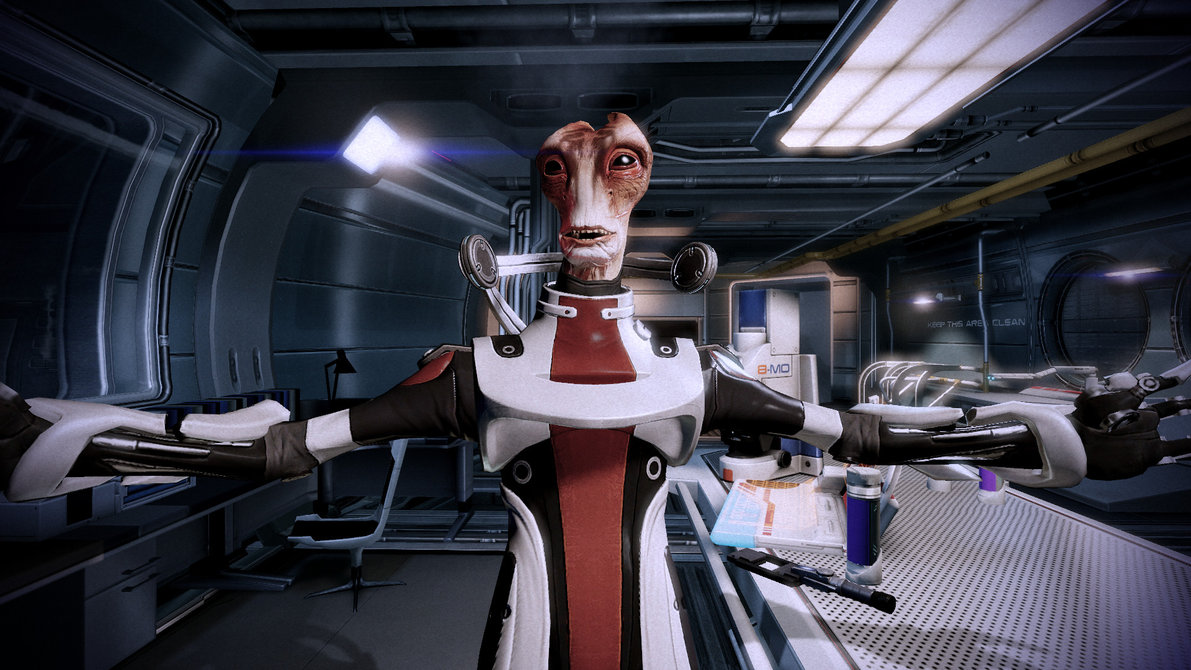
The Mass Effect series was easily one of the most influential and iconic of the last generation. Of the three games, it was perhaps Mass Effect 2 that made the biggest impression. The rough edges and janky combat of the first game were replaced by punchy, functioning third-person combat. The overarching story may have been the weakest of the trilogy, but the individual loyalty missions were some of the most enjoyable parts of Mass Effect as a whole. Hell, we’ve already done an entire week dedicated to Mass Effect, so I needn’t really say more. While there are some who prefer the first game in some ways (I’m one of them), the fact remains that Mass Effect 2 was the moment the series broke through.
Braid
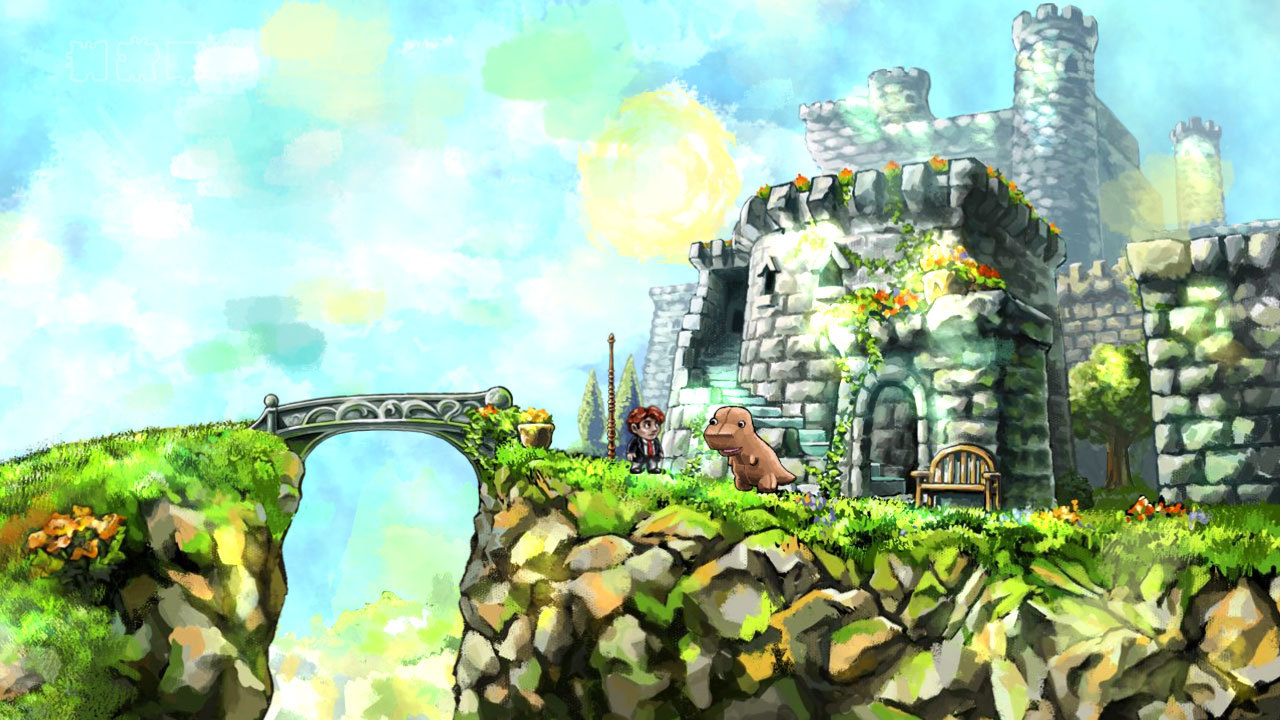
Jonathan Blow’s phenomenally successful puzzle platformer set a couple of new standards for video games. It was one of if not the first mainstream “art” games, a thoughtful piece of work as concerned with introspection as it was with on-screen action. It had something to say and, crucially, said it through actual gameplay: Braid‘s time-rewinding mechanics were reflected in the story of Tim and his quest to rewind time and repair a broken relationship. For better or for worse, it heralded the age of the “arty 2D platformer,” which on the whole provided a relatively easy-to-use canvas for creative independent developers to try new ideas. And of course, Braid introduced the world to Mr. Blow, who remains one of the sharpest, most outspoken game creators around.
Metal Gear Solid 4: Guns of the Patriots
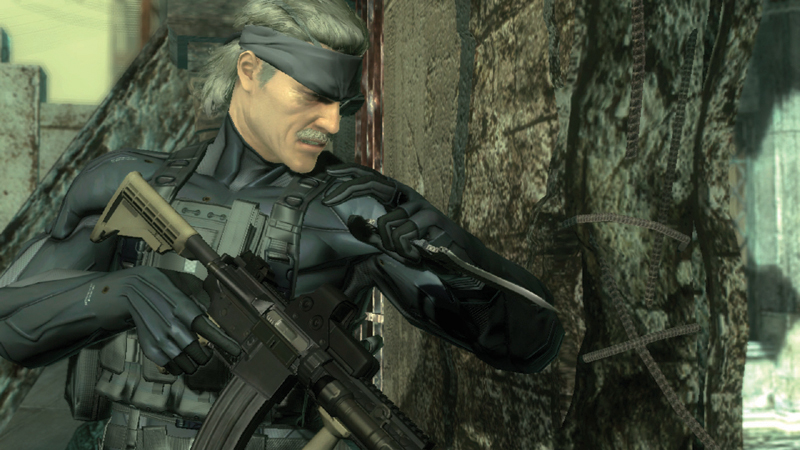
Hideo Kojima’s sprawling (and some would say overstuffed) opus Metal Gear Solid 4: Guns of the Patriots felt like it rang in the moment the PlayStation 3 “arrived.” Here was a game, exclusive to Sony’s console, that finally showed off what that extra horsepower, hard-drive space and blu-ray player were capable of. The game remains (and will remain) in the library of many a PS3 owner, and while other console-defining games would follow it, MGS4 remains one of the first major steps in the PS3’s eventual comeback.
Speaking of the PS3…
Uncharted 2: Among Thieves
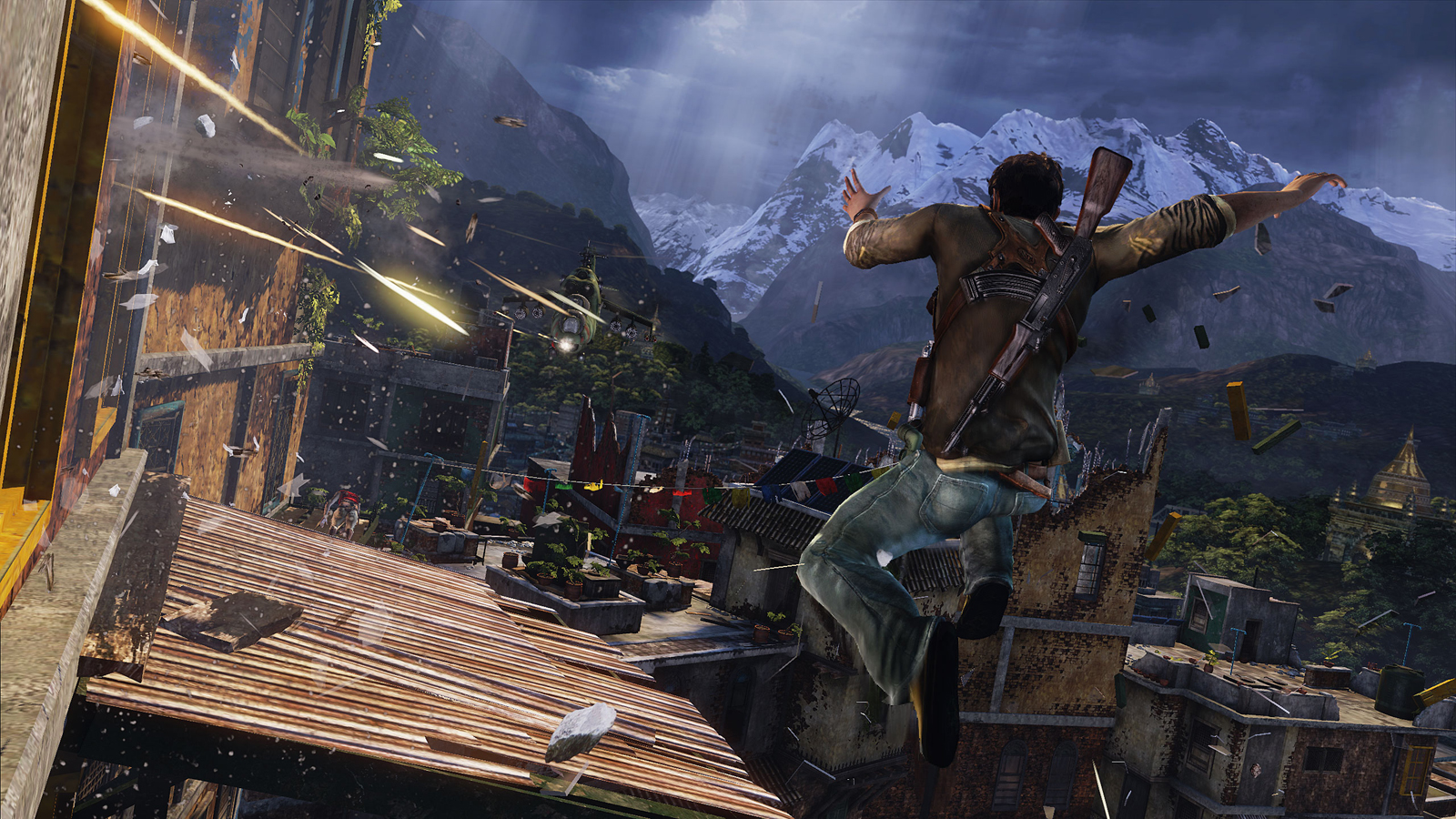
The first Uncharted game, Drake’s Fortune, got some people talking about the PS3. (I remember a former student of mine talking about how Drake’s shirt only got partially wet when he only partially went underwater). But it wasn’t until Uncharted 2 that people started saying, “OK, you have to see this game.” Uncharted 2 was the game that finally got me to buy a PS3. I’m guessing I wasn’t the only one. Those vistas, those setpieces, that amazing train level… Naughty Dog would go on to make The Last of Us, one of the great action games of the generation, but Uncharted 2 remains their defining game. (It was also less well-remembered for its early stab at social media integration: The game initially included annoying Twitter functionality that its developers eventually turned off.) Uncharted 2‘s many smart ideas — no loading screens, semi-interactive setpieces, upside-down shooting, and on and on — have and will continue, to echo.
Wii Sports

The Wii was banking on a single gamble: That people wanted to play simple games using natural motions, rather than complicated button combinations. Any concept like that needs a game to sell it, and Wii Sports did just that. Without the Wii, Wii Sports would have been a regular old combination of sports minigames. Without Wii Sports, the Wii would have been an odd Nintendo console with no proof-of-concept games. Together, Wii Sports and the Wii managed to dominate the last generation of console gaming. And… yeah, you can also thank Wii Sports for the millions of mini-game collections that followed it, not one of them half as good.
Demon’s Souls
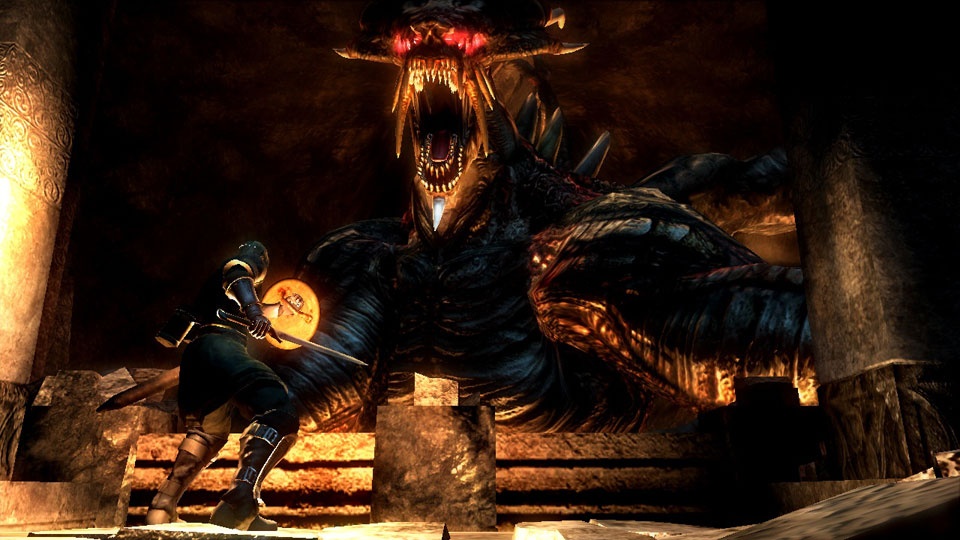
It started as a collection of murmurs — people talking about this game, this new game, and boy wasn’t it hard? But man it was good, but WOW it was hard, and it really took them back to what games used to be like, when we were young, only it was better and oh man did I mention how hard it was? I spent a long while terrified of From Software’s Demon’s Souls, but when I finally played and embraced it, I found a game that wasn’t so much hard as it was… well, brilliant. Demon’s Souls paved the way for its follow-up Dark Souls, which fleshed out its predecessor’s core concepts while adding some new ideas and more or less perfecting an already-great recipe. There’s a reason that so many upcoming games are described as “It’s like Dark Souls meets [other game]”. The Souls games may be the purest gaming experiences of the last generation, and demonstrated that there are some who still want mystery and true challenge in their games. From the unexpected, seamless multiplayer to the extreme but fair challenge to the oddly affecting, asynchronous note-leaving, Demon’s Souls and Dark Souls were easily two of the most influential — and well-made — games of the last generation.
Portal
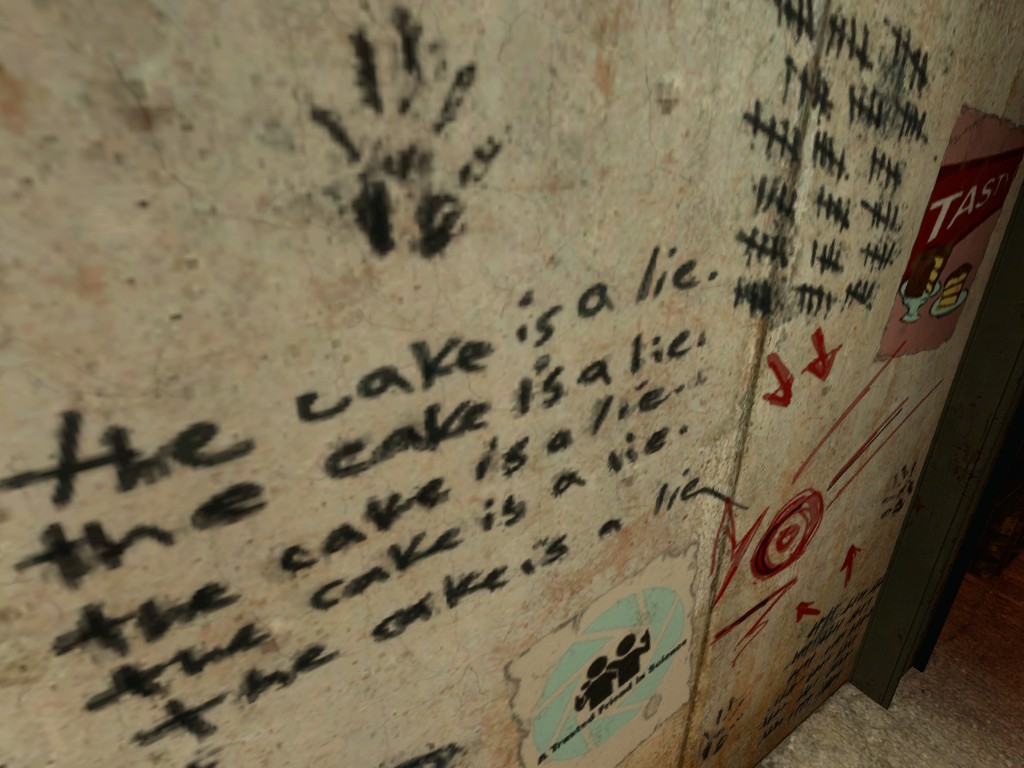
“The cake is a lie.” Is there any one phrase from the last generation of gaming as tired, overused but nonetheless iconic as that? Probably not. Portal came out of nowhere, a short, bundled game included in Valve’s The Orange Box along with Half Life 2: Episode 2 and Team Fortress 2. Even among such heady company, Portal stood out. GLaDOS immediately sailed past SHODAN to the top of every “best villains” list on the internet, and the portal gun was immediately recognised as one of the most brilliant mechanical concepts of the last eight years. It’s no coincidence it’s been mimicked and outright copied in scores of games since. Portal was perhaps the best thing in the smallest package of the last generation.
Call of Duty 4: Modern Warfare
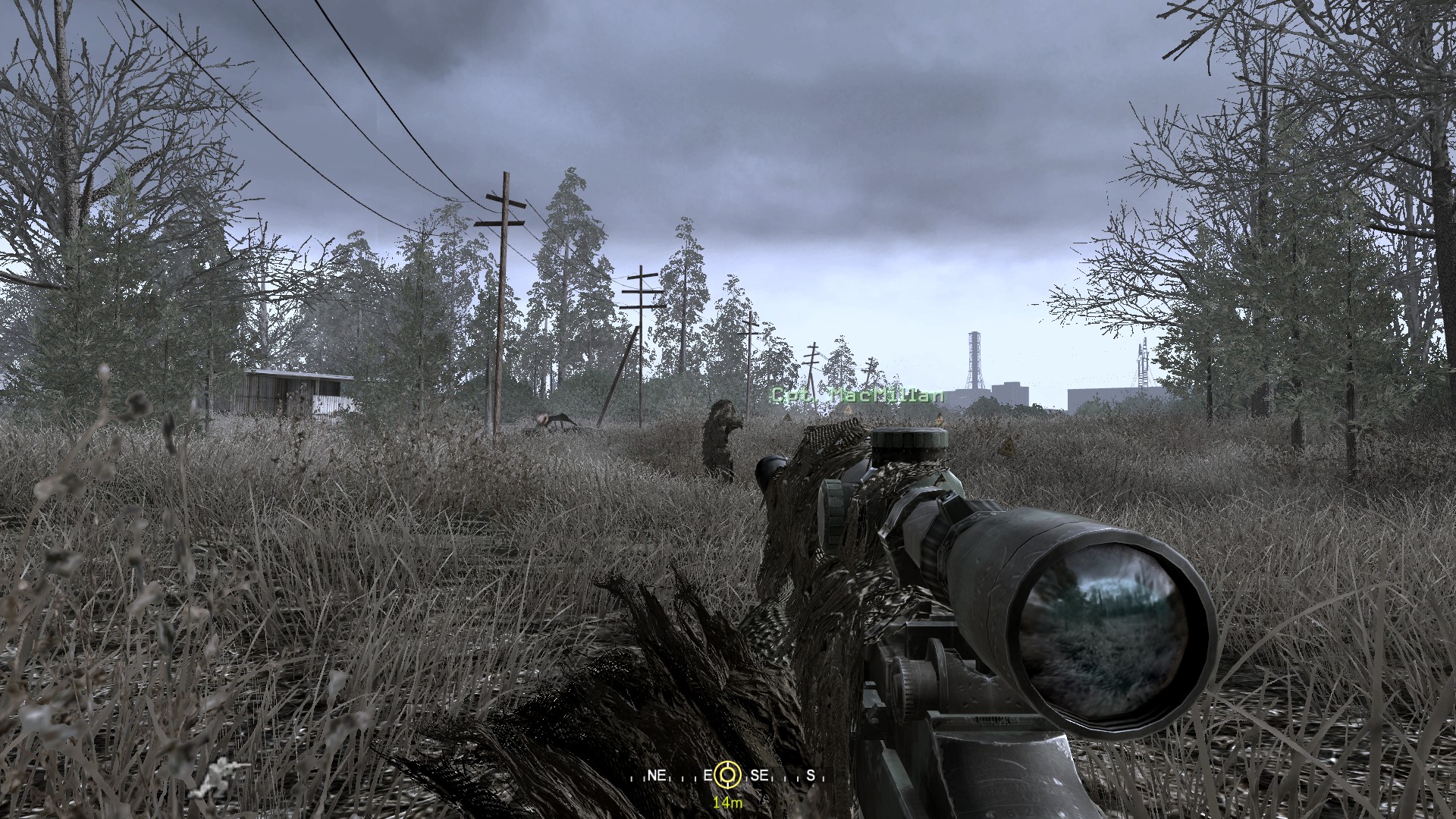
Where to even begin with the impact of Modern Warfare? It’s probably the most influential game on this list. The multiplayer suite added persistent RPG elements to keep players addicted… and now just about every other multiplayer shooter does the same thing. The single-player contained scenes that have been mimicked, copied and stolen by every other military shooter since, sometimes even by other Call of Duty games. Everything about Modern Warfare has been replicated so many times over that it’s become a blight on modern gaming; Call of Duty is so popular as to be ubiquitous. Its sequels have, arguably, lost their creative mojo. But for its moment in time, the originator — Modern Warfare — was pretty damned good.
Grand Theft Auto IV
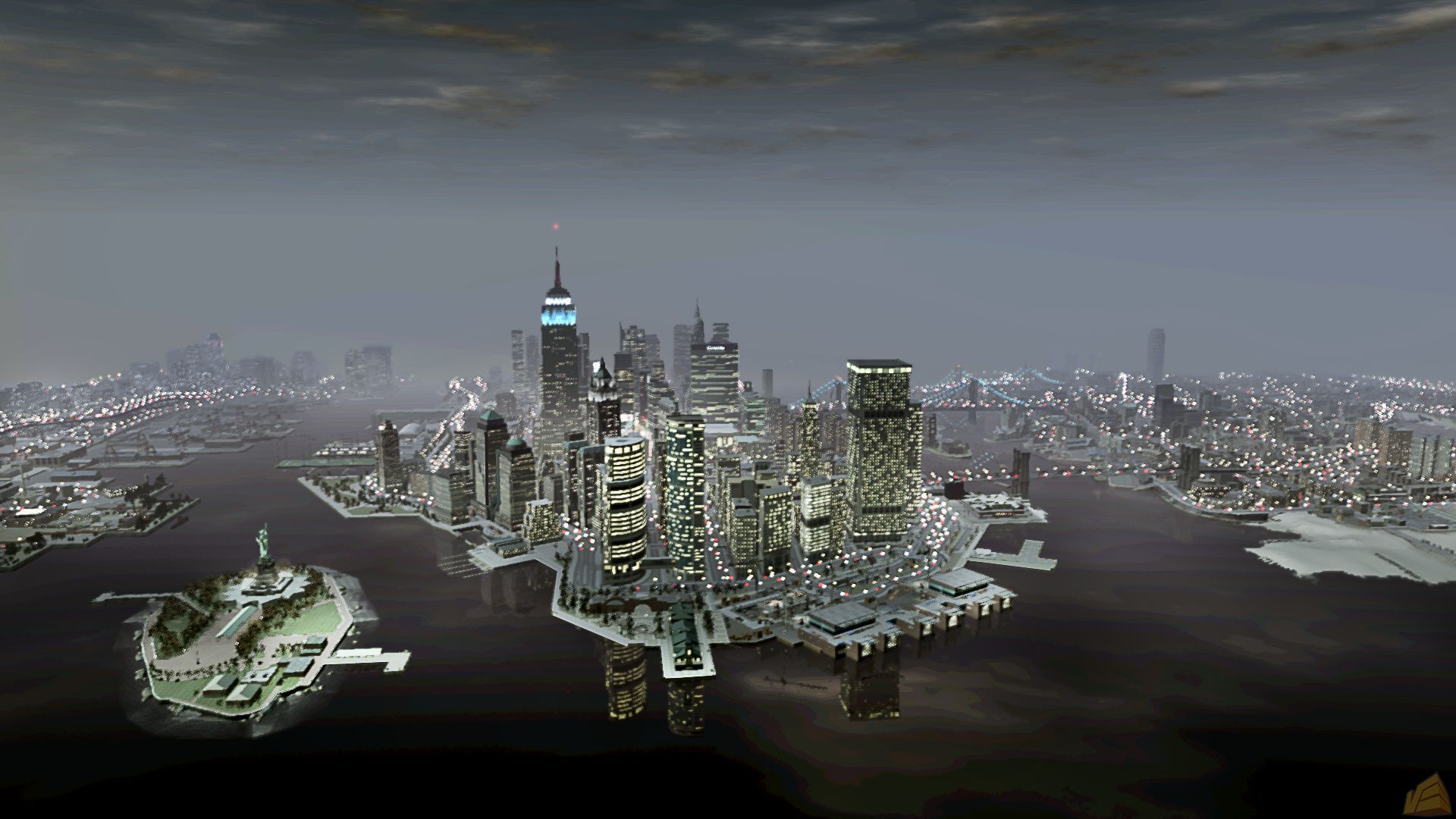
GTA V may have sold more copies in its first week of release, but GTA IV was the first game to demonstrate what a powerhouse like Rockstar was capable of on more powerful gaming hardware. I spent my first hours with this game in a state of constant awe, wondering just how much was possible. Of course, the answer turned out to be “not as much as you thought,” but man, that illusion… it was something.
The Elder Scrolls V: Skyrim
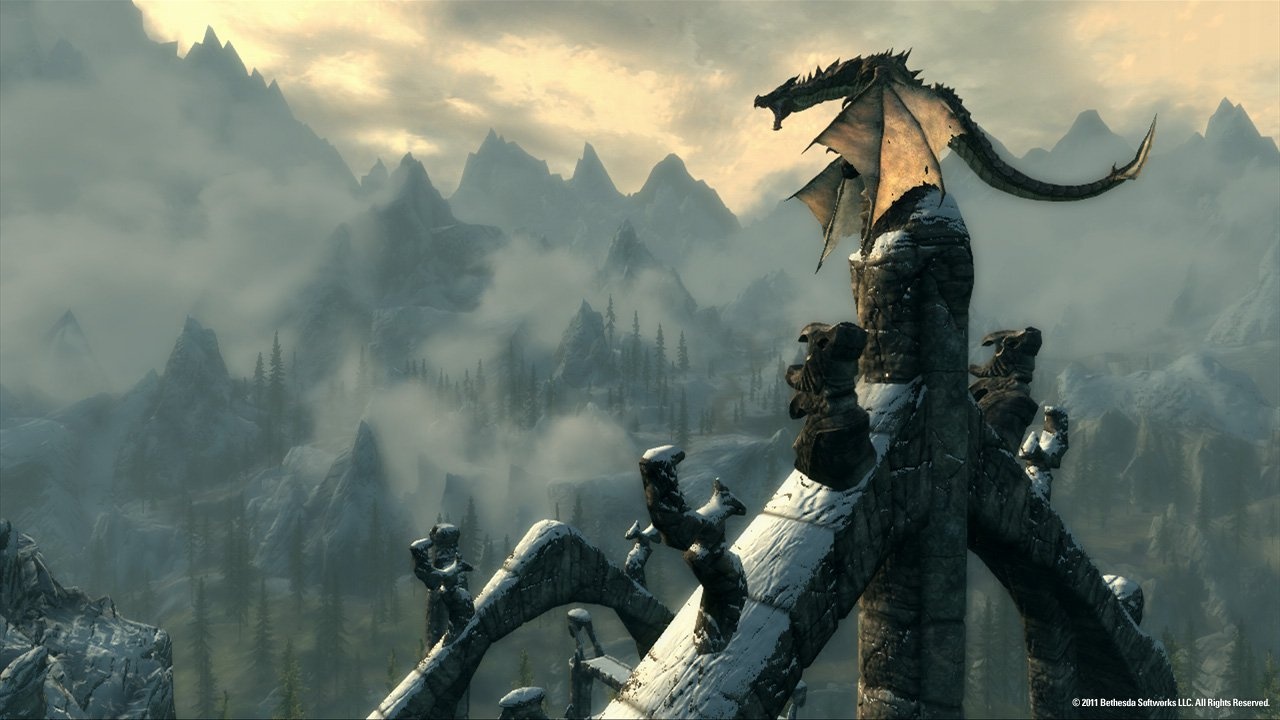
Of course Skyrim had to be on this list. Its predecessor, Oblivion, was actually the reason I got an Xbox 360 and got back into video games. But Skyrim was the game that blew open the entire notion of an open-world fantasy game. It went on to become a meme: Skyrim with guns, Skyrim with cars, Skyrim with even more dragons… and it remains one of the most ambitious and flat-out massive games of the generation. And yeah, we can also thank this game for the “arrow in the knee” meme. Thanks a lot, Skyrim.
Journey
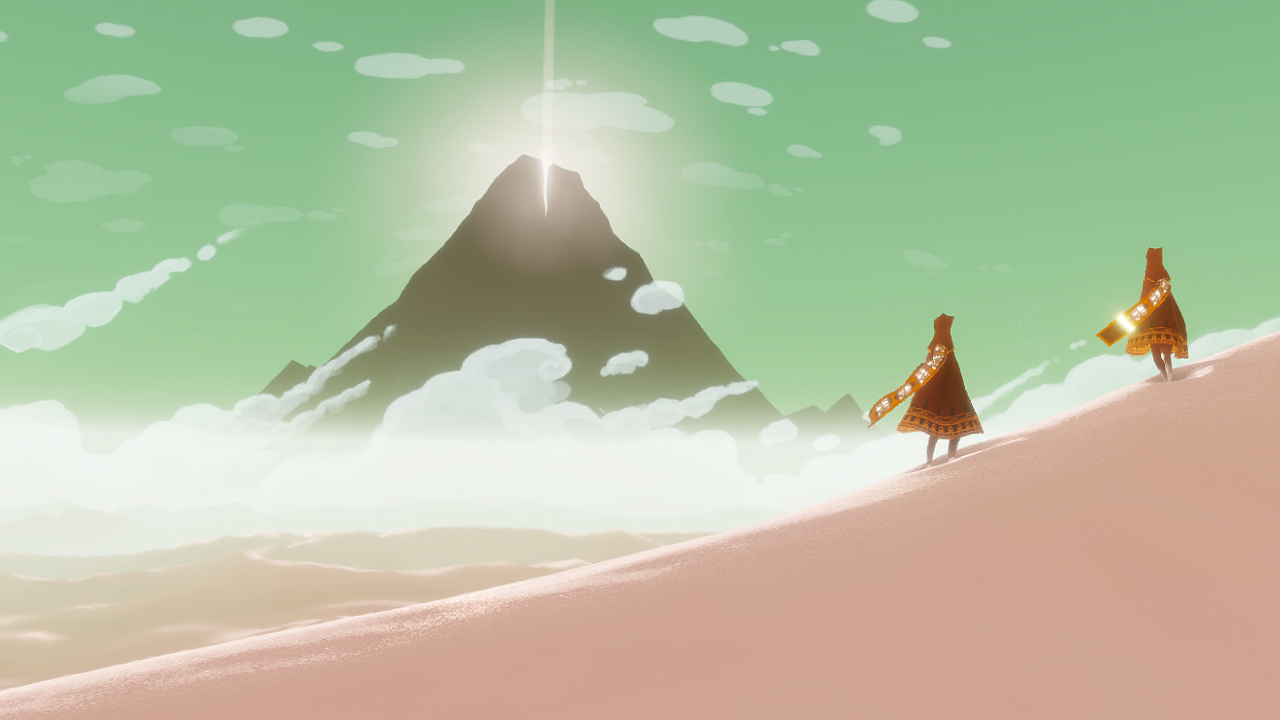
Journey was perhaps the first art game to become a system-seller. There had been gorgeous games before it, but Journey was so astonishingly lovely that people would tell their friends: You have to see this. Austin Wintory’s score remains one of the most beautiful and evocative of the generation, and the game’s peaceful embrace of Demon’s Souls‘ seamless multiplayer was inspired. Journey was, and will remain, unforgettable.
Gears of War
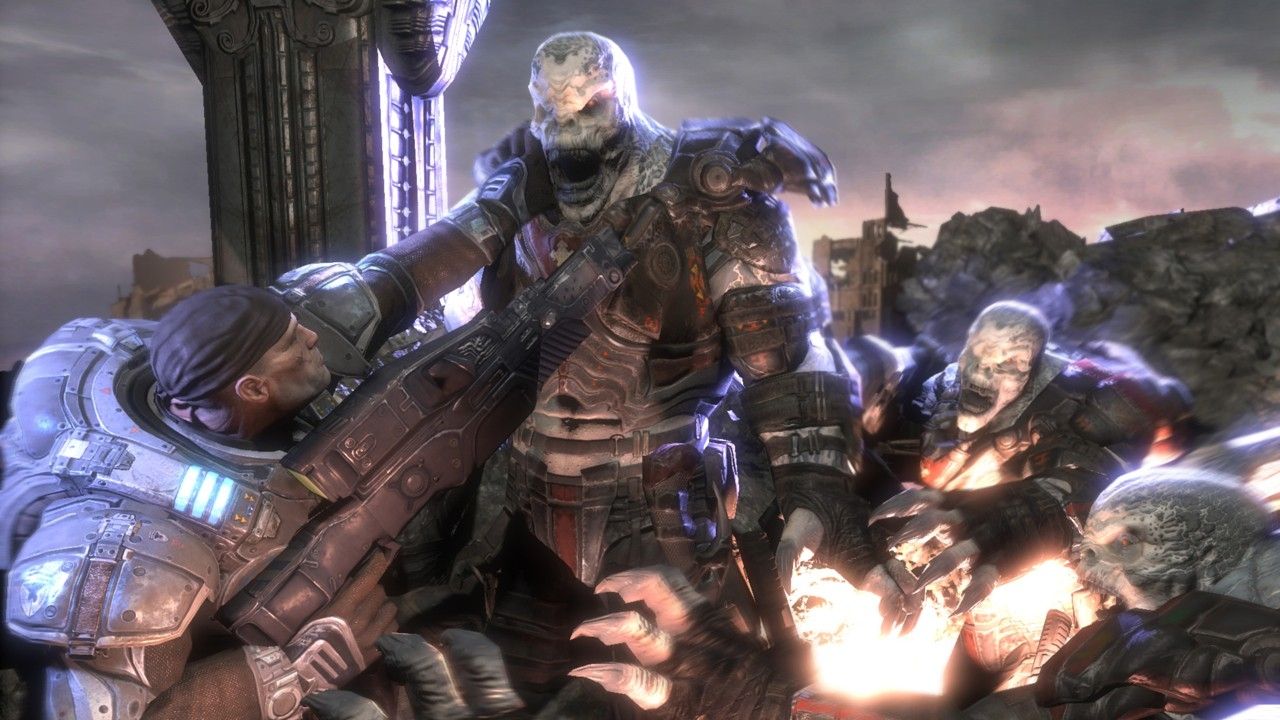
What Metal Gear Solid 4 did for the PS3, Gears of War did for the Xbox 360. It was the console’s graphical showcase, and marked the moment the Unreal Engine began its steamroller-like takeover of the last console generation. But really, graphics weren’t even Gears’ most notable aspect. Gears may have borrowed its cover-focused shooting from Kill Switch, but Gears was the game that popularised the approach. Who’d have thought that making a shooting game focused on taking cover would make things so much more exciting and interesting? Or that an “active reload” mechanic, which asked players to do more than simply press a button to reload their gun, would be so supremely satisfying and widely copied? Gears of War also introduced seamless two-player cooperative play in its campaign, which went on to become a standard for many subsequent unrelated games. Gears 2 then introduced wave-based cooperative “horde mode” multiplayer, a logical extrapolation of the first game’s single-player co-op. It was also notable for offering players informative pop-ups to keep them appraised of their achievement progress. With most of the Epic Games creative team scattered to the wind, we may never get another Gears game. But the series’ design innovations will continue to ring out for many years to come.
Steel Battalion: Heavy Armour
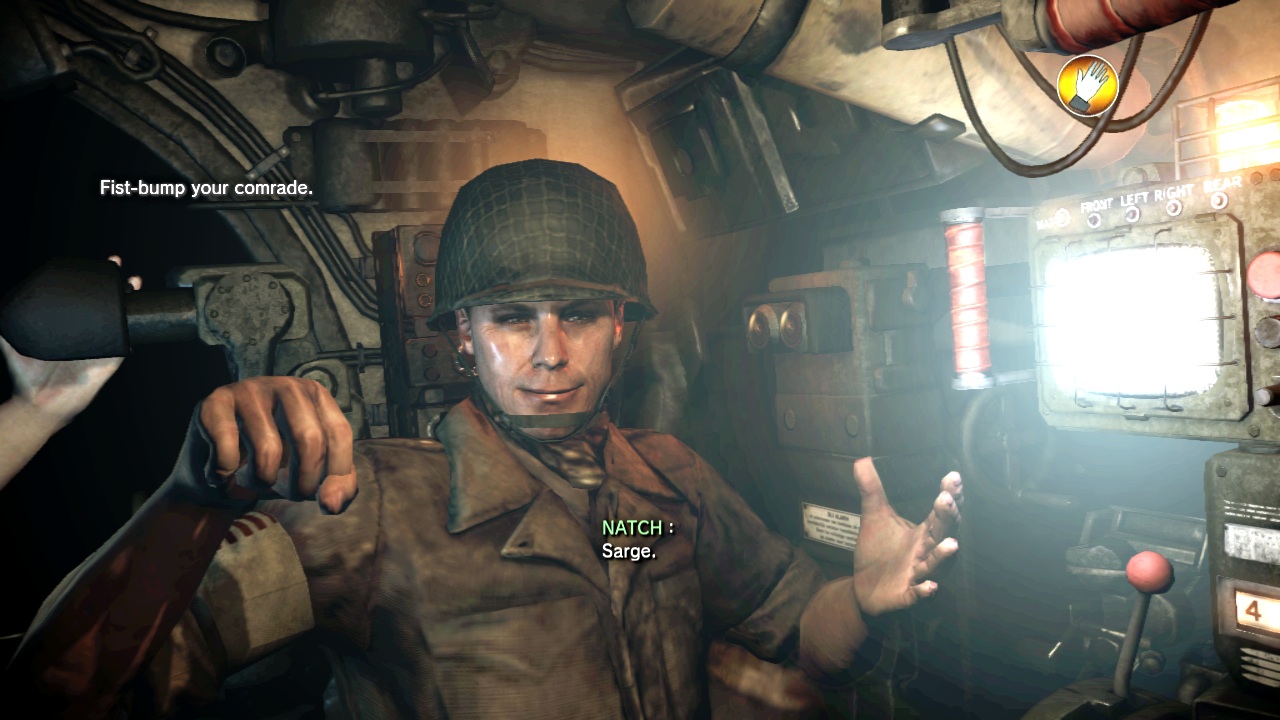
Oh, the Xbox Kinect. Microsoft seemed so certain that their motion-control camera would bring about great new ways to play games. But for all the people who bought a camera for their Xbox, we got so very few Kinect games that were even halfway decent. Though there was one… one that, uh, stood apart. Steel Battalion: Heavy Armour took a series known for its incredibly overblown physical controller and attempted to make it work with Kinect. And failed miserably. It seemed so interesting in previews, and looked so promising in demonstration videos, that it remains a lesson in not trusting a game until you really play it. Or, attempt to play it, as the finished game was essentially unplayable. Steel Battalion: Heavy Armour was possibly the greatest example of — with the exception of a few fun games like Dance Central and Gunstringer — the overall failure of the Kinect and motion control in general to work as a hardcore gaming accessory.
BioShock
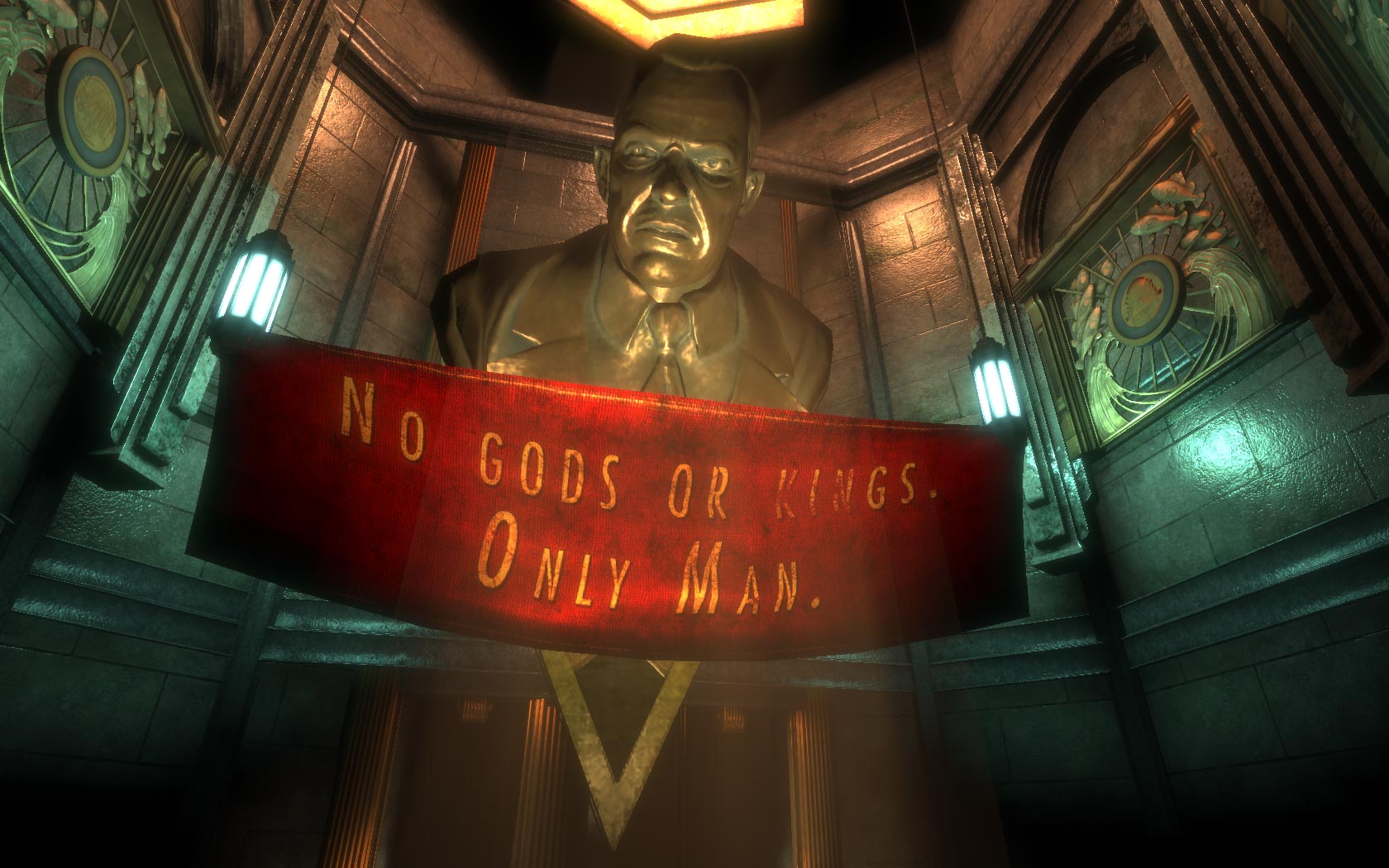
How many game pitches over the last few years have begun, “It’s like BioShock, but…” Ken Levine’s underwater opus remains a high-water mark for single-player narrative games even this many years after its 2007 release. Few video-game creations have remained as iconic as the Splicers, Big Daddies and Little Sisters of Rapture, and while a replay of the game reveals several combat mechanics that haven’t aged all that well, the game itself is as audacious a performance now as it was then. Plus, it gave us both “Would you kindly?” and the term Ludonarrative Dissonance.
Deadly Premonition
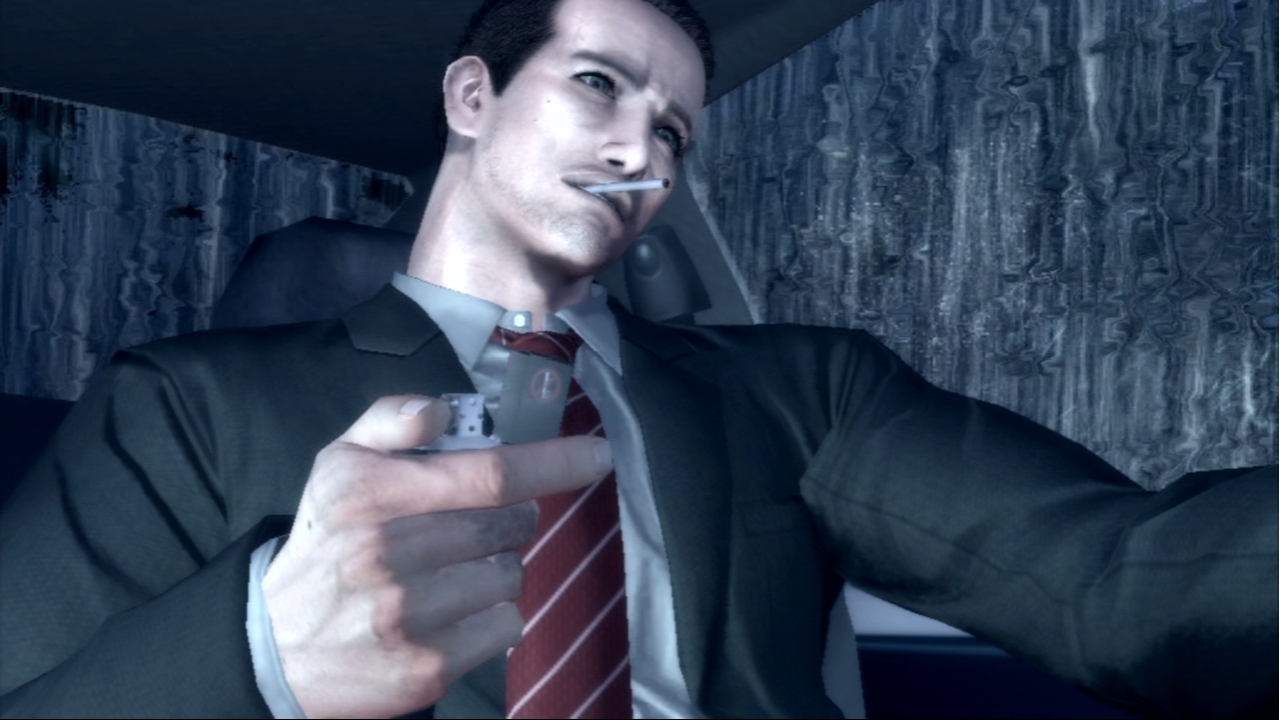
How best to value weirdness? Is it possible to love an ugly game? How about a “bad” one? Several years after its unceremonious, budget-priced release on Xbox 360, Deadly Premonition has earned a rare distinction: It is a true camp video game. The vision of one man — Japanese developer Hidetaka “SWERY” Suehiro — defines the entire game. Equal parts Twin Peaks homage and bizarre Resident Evil remix, the game contains so many strange, unforgettable moments that it’s impossible to even begin to list them. The graphics looked like a launch game on the original Xbox. Its enigmatic, pop-culture obsessed protagonist Francis “York” Morgan remains one of the coolest characters of the last generation. The controls were so terrible that certain sections feel like a dark joke. Its soundtrack is incredible; immediately iconic, strange, beautiful. It was extremely difficult to understand or play without first reading a fan-written guide.
Beneath the strange exterior and overblown cinematics lies a fascinating bit of open-world game design, balancing upon one of the most immersive and fully-realised virtual towns ever created. It laughed in the face of the entire concept of the review score, receiving a 2/10 from one major publication and a 10/10 from another, while a third outlet dedicated an entire series to naming it game of the year. Deadly Premonition made it possible for us to love a “bad” game, but that was perhaps its craftiest trick. It wasn’t a bad game at all. It was very, very good.
Geometry Wars: Retro Evolved
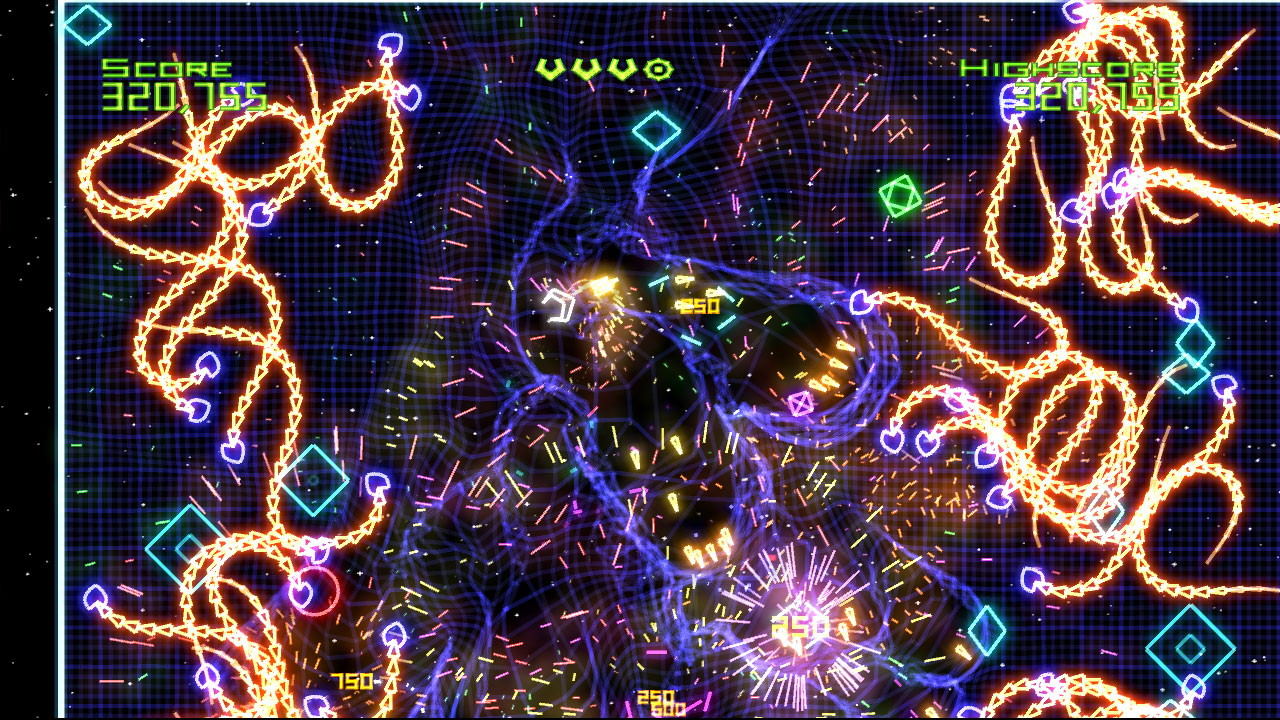
Geometry Wars was a proof-of-concept for mid-sized downloadable console games. Up until the last few years, it had been widely held that big, graphics-intensive games came on discs, while downloadable games were smaller, bite-sized things. Pac-Man revamps and the like. Geometry Wars proved that it was possible to release a mid-sized game digitally, and opened the door for the flood of downloadable console games that followed. (It was also a hell of a lot of fun to play.)
Madden NFL
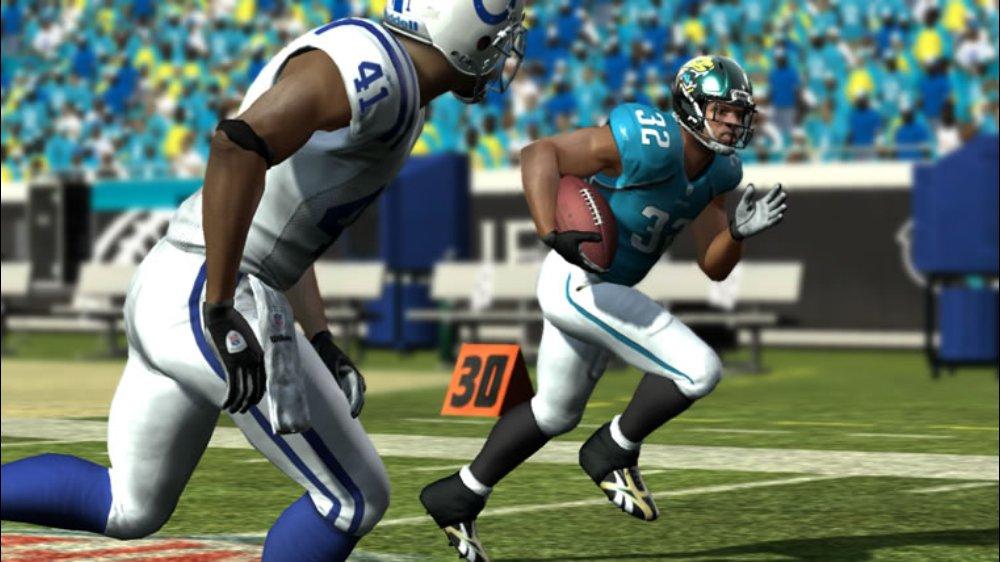
Owen Good writes: Madden NFL makes this list but not for honorable reasons. No series defined this console generation of sports video games more than Madden, which in 2005 ushered in the era of exclusive agreements with professional leagues who licence video games. For the lifespan of this console generation, sports fans not only had fewer choices, in terms of direct competitors to games like Madden NFL or MLB 2K, they saw fewer and fewer of the arcade-style titles that had added so much variety before 2005; zero were published with league licence in 2013.
Madden may not have been the only sports simulation to blunder its way through the Xbox 360 launch — others like NBA Live, NHL 2K and MLB 2K also stumbled and never recovered. But it was the most visible, and it wandered for most of the era developing features that made for great-sounding back-of-the-box copy one year only to be abandoned in the next. There will be no Major League Baseball game on the Xbox One come March, and it is wholly because of the era Madden ushered in and continues to represent, the era of the exclusive licence.
FIFA Soccer
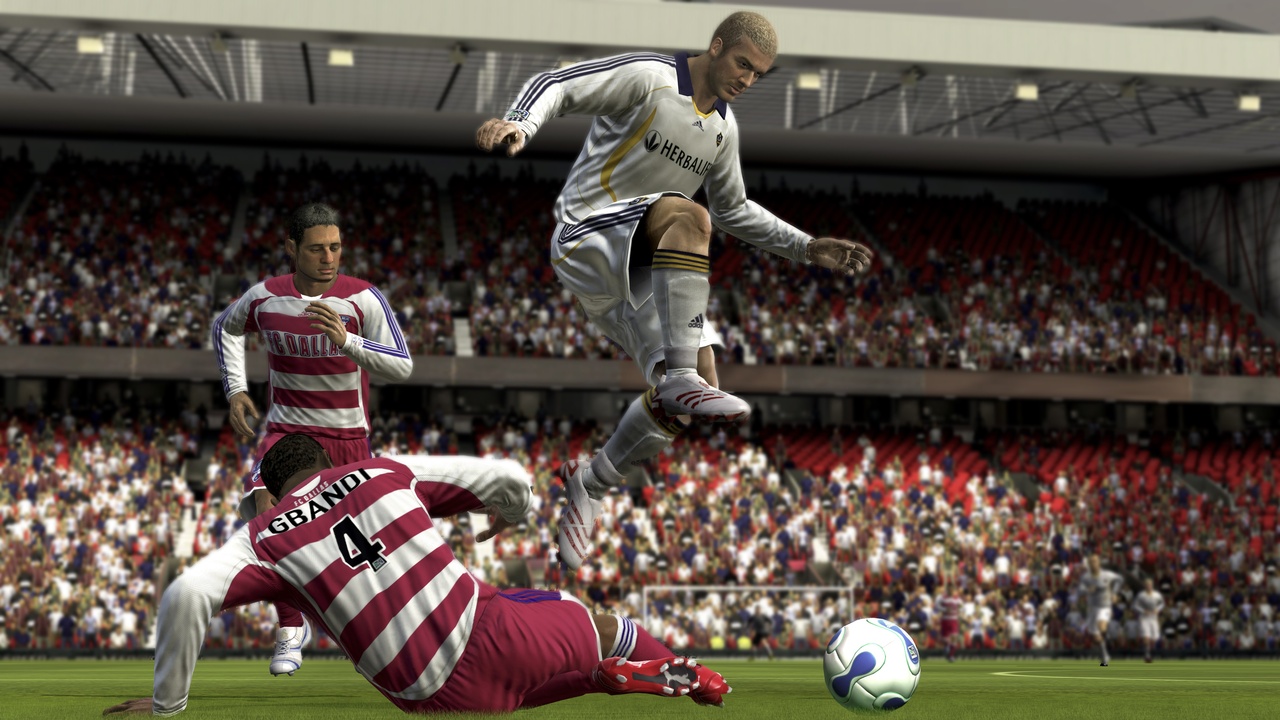
Luke Plunkett writes: Where Madden epitomized everything wrong with EA Sports during the past generation, FIFA was an example of the publisher at its best. Overhauling the superior Pro Evo series was no small feat, but the effort EA put into advancing FIFA‘s gameplay on the pitch – while shoring up its presentation off it – means it’s now deservedly the biggest sports series on the planet.
Rock Band 2

The era of the plastic-instrument music game may have drawn to a close, but many fond memories remain. For a few shining years, we were all rock stars. Harmonix’s Rock Band 2 represents, to me, the peak of the era. It wasn’t the first game in the genre: That honour goes to Harmonix’s plenty revolutionary Guitar Hero. And it wasn’t the game with the best instruments, nor was it the most comprehensive — those honours go to Rock Band 3. It was, however, the music game that arrived at the peak of the genre’s popularity, and for a party game like Rock Band, popularity is everything. The drum set was better. The setlist was amazing. And everybody wanted to play. I have more fond memories of playing this game with friends than any other game from the past generation. Long live Bratney Spaers! Long live the 9th Avenue Sluts! For those about to rock, etc.!
Final Fantasy XIII

Easily one of the most hyped Final Fantasy games of all time, XIII represented what looked like a turning point for the series. How would Final Fantasy make its (at the time) next-gen debut? What place did a JRPG have in the more and more action-focused gaming landscape? FFXIII was not without its merits, and has attracted more than a few loyal fans, including our own Mike Fahey. But in general, the game is held as an overly linear disappointment that took far too long to get going. It wound up a strange albatross for publisher Square Enix, who doubled down on the series and released a sequel few people wanted, which sold dismally, and who has yet another sequel coming this winter. Furthermore, the series’ strange digression may have turned people — fans and developers alike — off from console JRPGs this generation. Square Enix has spent more than enough time tracking the saga of Lightning and her friends, and it’s time to move on.
Super Mario Galaxy
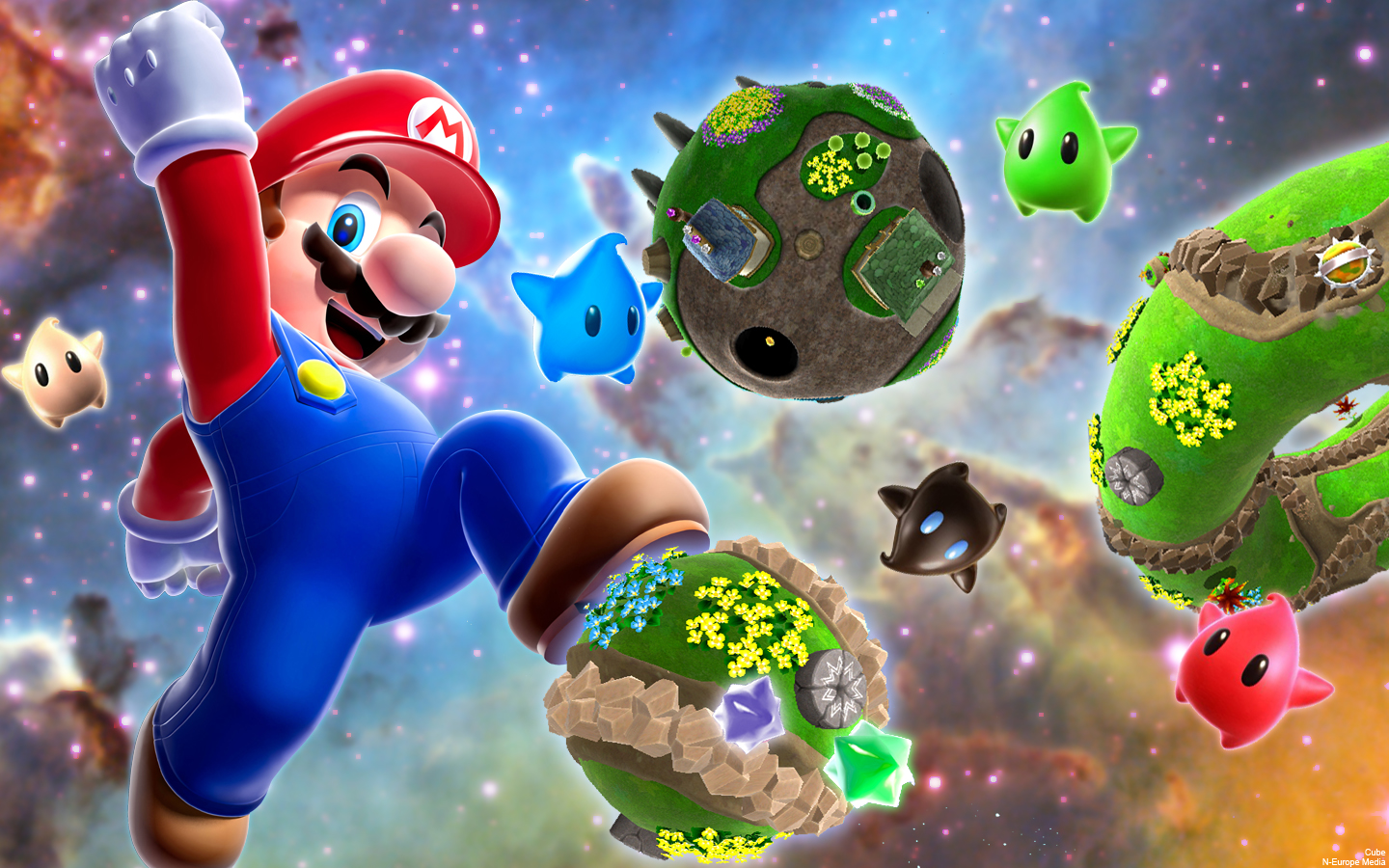
Joyous to play and exploding with creativity, Mario Galaxy not only reinvigorated the Mario brand, it introduced a number of fascinating new mechanics, several of which were lifted by other games. In particular, it popularised the notion of a less essential co-op player with”Co-Star Mode,” in which one player took on a helper role while the primary player controlled Mario. A classic by any measure, Mario Galaxy was one of the Wii’s best games.
Wii Fit
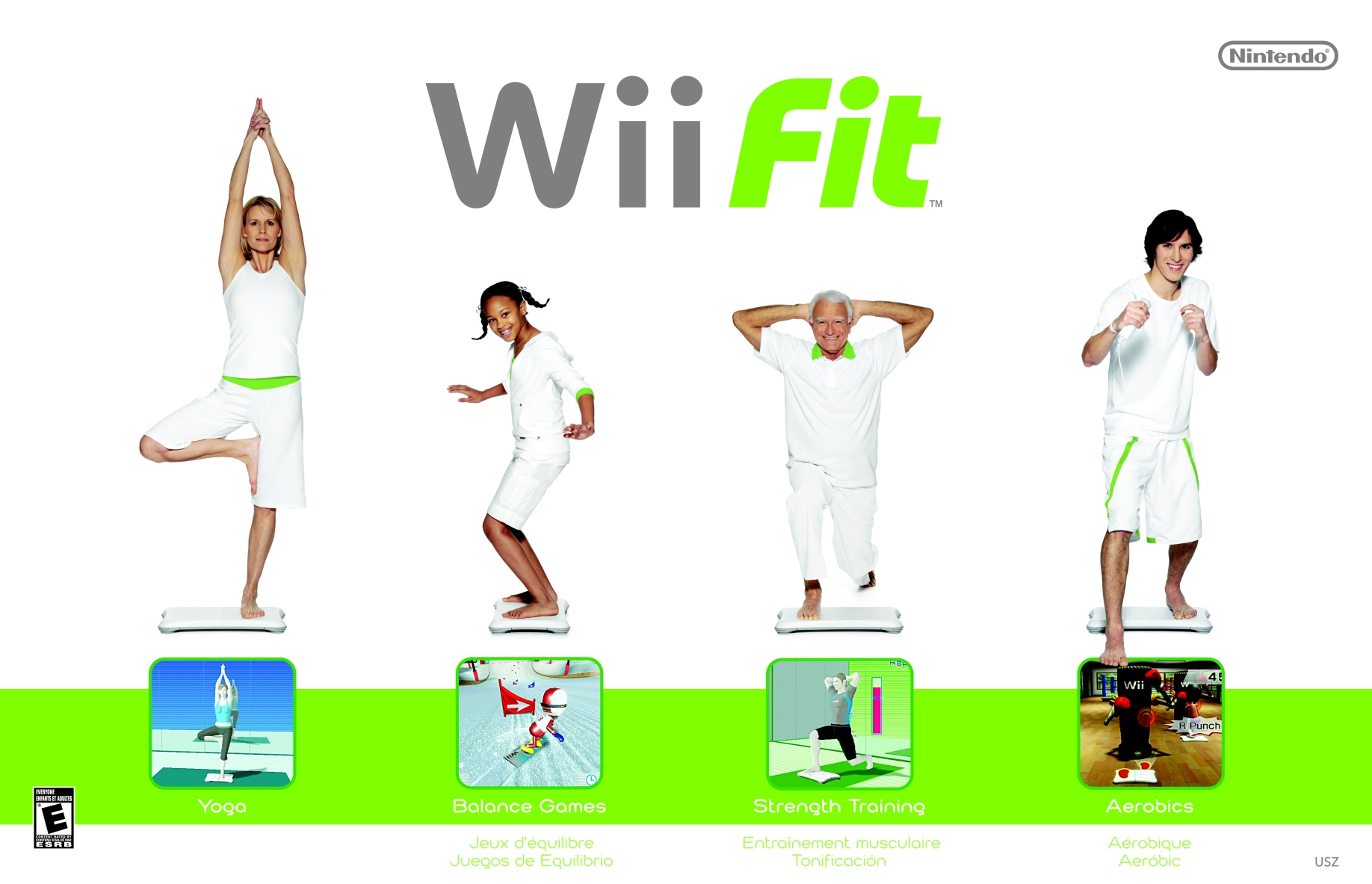
Wii Fit was another unlikely hit for the Nintendo Wii — it went on to become one of the best-selling games of all time, and an easy justification for the Wii Balance Board peripheral. It demonstrated that people want to use their consoles for more than just “regular” video games, and that fitness and physical activity could be greatly enhanced by smart game design. The impact of its success will likely be felt for generations to come, as game developers get more and more creative with how they get us out of our chairs and into shape.
Street Fighter IV
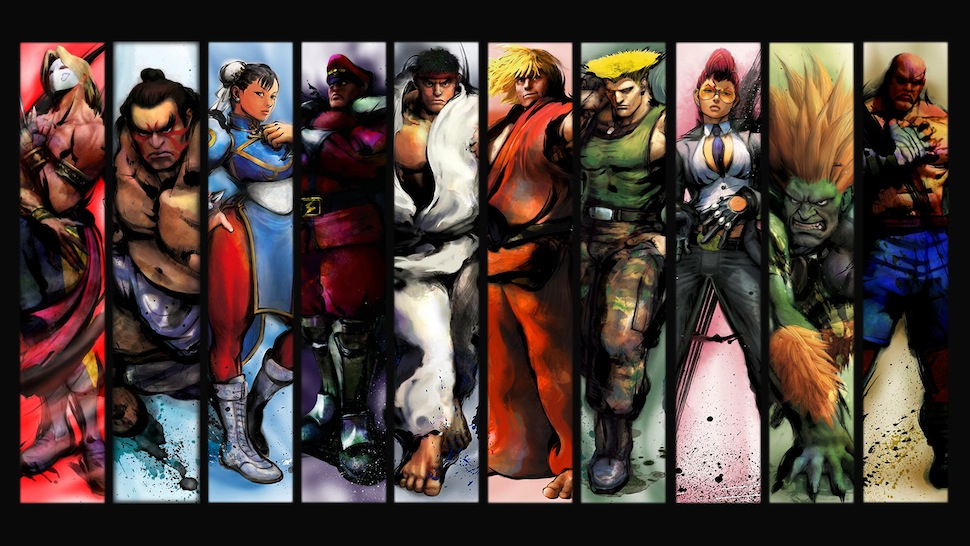
While the fighting game genre will never truly disappear, it did see a slump during the early parts of the last generation. Who better to pull it out than Street Fighter, returning with a wallop and getting millions of people playing once more as Blanka, Ken, Ryu and the rest of the gang. Well-balanced, well-designed and gorgeous looking, Street Fighter got up off the mat and dominated the fighting game genre.
Far Cry 2 and Spec Ops: The Line
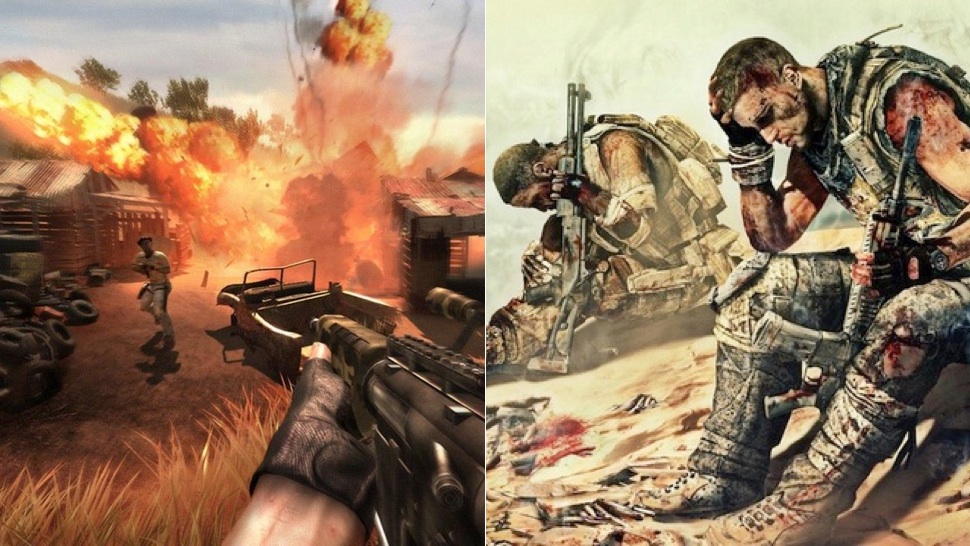
Wait wait wait, two games are on this list… together? Yep. So why are they here? Well. As the last generation progressed, we began to see game developers wrestling with the fact that the games they made were horribly, ridiculously violent. And their games, exemplified by Far Cry 2 and Spec Ops: The Line, began to reflect that struggle. Far Cry 2 remains one of my favourite games of the last generation, largely because creative director Clint Hocking’s design philosophy was so clear-eyed: He wanted to create a world on fire, a hostile place that aggressively provoked chaos. Your character wasn’t a hero, he was a piece of human garbage, a loveless mercenary picking over the remains of a war-torn African nation. Your “buddies” weren’t your friends, they were arseholes just like you. This place was on fire, and you were here to watch it burn. Far Cry 2 was, in the words of onetime “permadeath” player Ben Abraham, a game about entropy. It was also a difficult, darkly seductive game that derived pleasure from its deadly unpredictability. I rarely felt good while playing it, but I never wanted to stop.
On the other side of the gun-barrel sits Spec Ops: The Line, an incredibly violent third-person military shooter that, when it came down to it, hated itself and its own violence. Lead writer Walt Williams is an interesting guy and his intent with the game was clear. The finished product is a muddle, but it makes its point far more directly than anyone was expecting, including me. Both games raised similar questions: Is it possible for a violent game to condemn violence? If we take a video game protagonist’s acts of mass-murder seriously, must we indict the player along with him? Will there ever be a successful anti-war shooting game? Is that even possible? Neither game provided entirely satisfactory answers, but it remains noteworthy that they asked at all. As those questions linger, it’s only a matter of time before more games attempt to provide answers.
Burnout Paradise
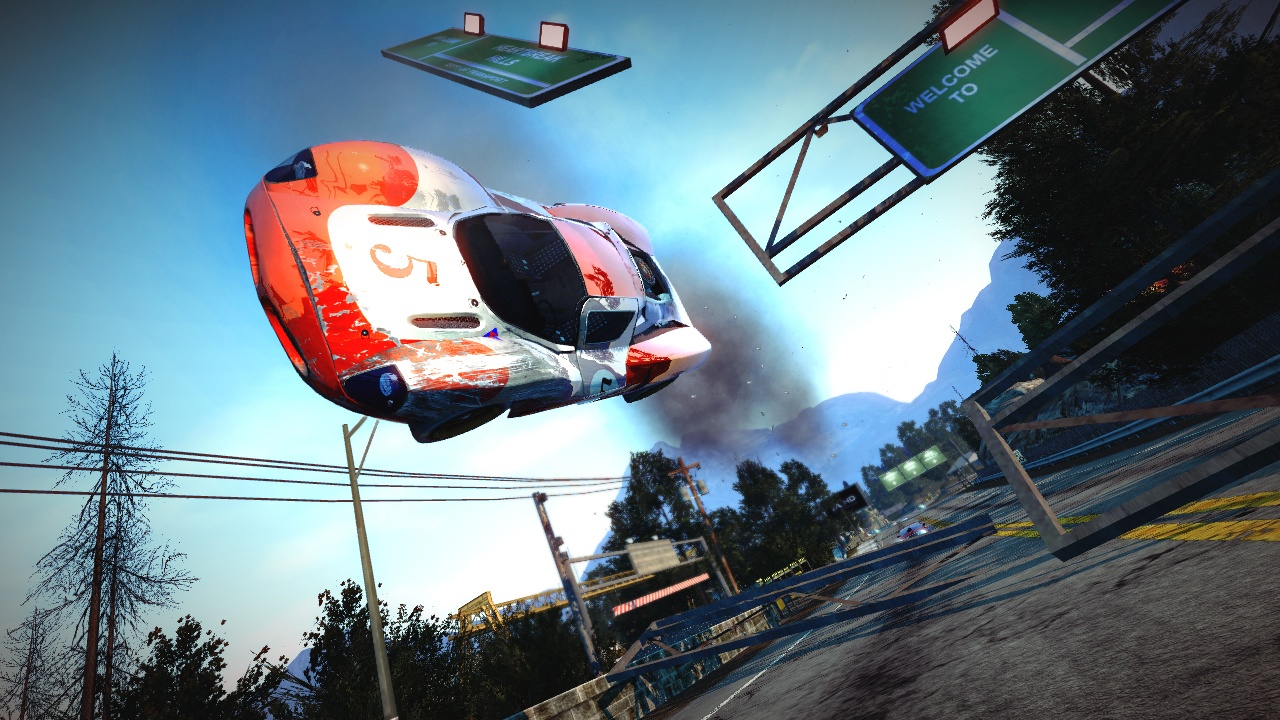
Plenty of last-gen racing games chased realism and simulation. But one game — Criterion’s Burnout Paradise — said to hell with that, let’s have fun. Years later, no pure racing game (or open-world driving game) has managed to capture the sheer thrill of Paradise, though Criterion’s follow up Need for Speed: Most Wanted did come close. Hopefully we’ll get another Burnout game in the next generation of consoles. The world is ready.
Manhunt 2
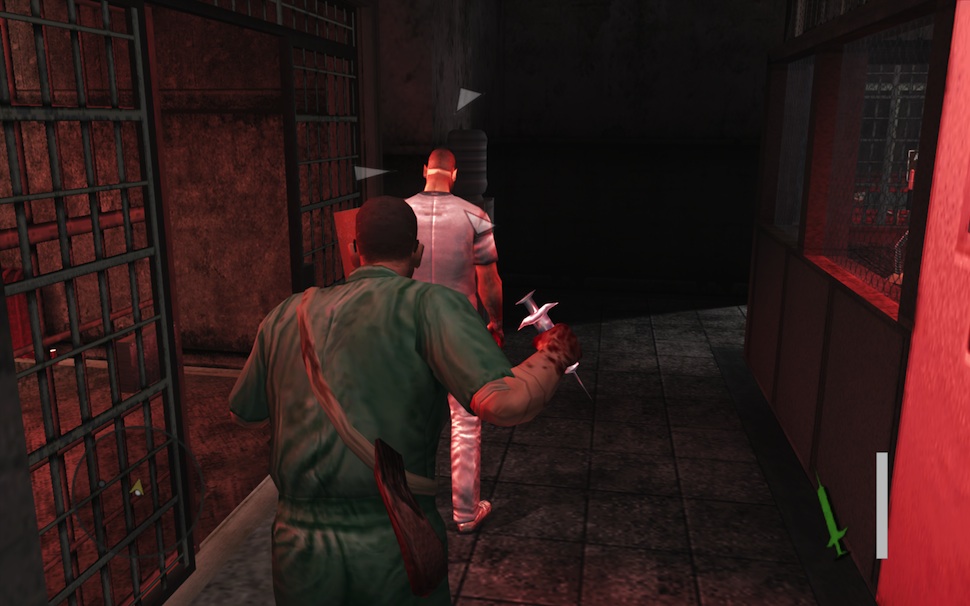
Rockstar’s Manhunt 2 was arguably the most notorious game of the last generation. When talking about this article, my boss Stephen Totilo described Manhunt 2 as “the media-scare game of this gen.” That a virtual snuff-film simulator was released on the seemingly family-friendly Wii caused even more scandal — motion controlled beatdowns! It was one of the few games to receive an AO rating, which left Rockstar scrambling to change content and get it into stores.
Assassin’s Creed II
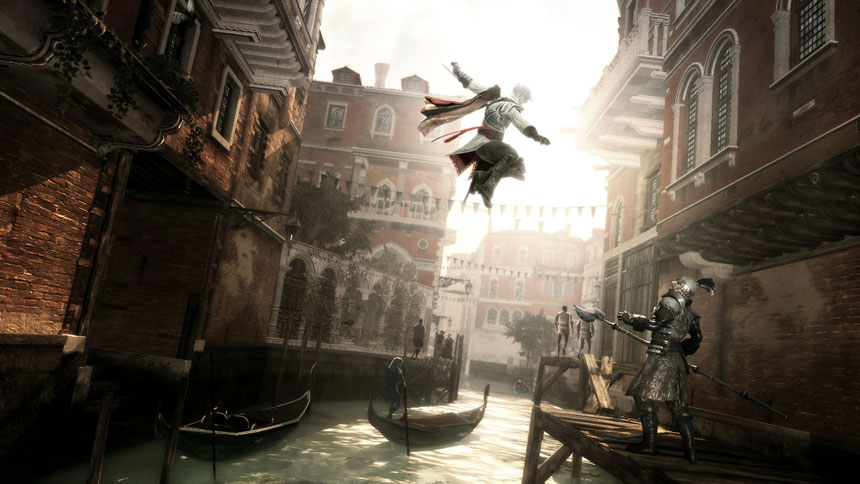
The first Assassin’s Creed was, at the time, one of the games that most called out “next-gen!” It looked unbelievable in demonstrations, offering freedom and fidelity the likes of which we had never seen. But the game itself… well, it could be tough to love. Assassin’s Creed II, however… it’s been said before, but Assassin’s Creed II made the first game feel like a mere tech demo by comparison. Not only did it refine the first game’s design and give us much more to do (and with more variety!), it introduced us to Ezio Auditore da Firenze, star of two subsequent games and still the most widely beloved character in the series.
Minecraft
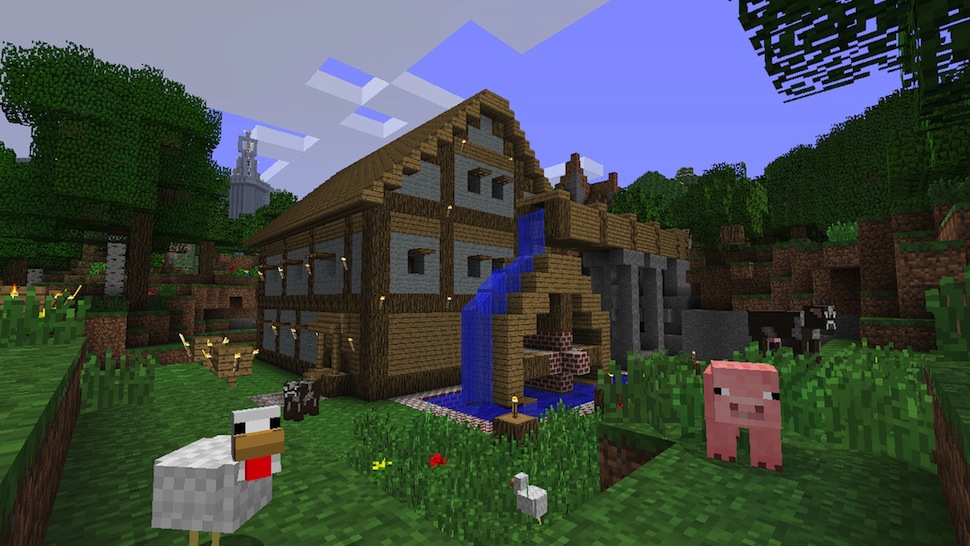
Sure, Minecraft began on the PC. But its migration to the Xbox 360 wound up making the game one of the most in-retrospect unsurprising console successes of the last generation. It sold incredible numbers, yes, but it also brought the magic of Minecraft into living rooms in a whole new way: It allowed for split-screen, local co-op. It seems so obvious now, but moving Minecraft from the PC into the living room gave a new angle on the series and let millions of newcomers fall in love with most enjoyable set of digital LEGOs around.
So there you have it. That’s our list but… ah, of course! We left off your favourite game. How could we have been so blind? Please feel free to write about that game in the comments, following this format:
[Image, pref. at least 640 width]
Game: The name of the game.
Platform: The game platform it was on.
Why: Why it defined the generation.
I’m looking forward to seeing what games defined each of your generations.
Last-Gen Heroes is Kotaku’s look back at the seventh generation of console gaming. In the weeks leading up to the launch of the PlayStation 4 and the Xbox One, we’ll be celebrating the Heroes — and the Zeroes — of the last eight years of console video gaming.
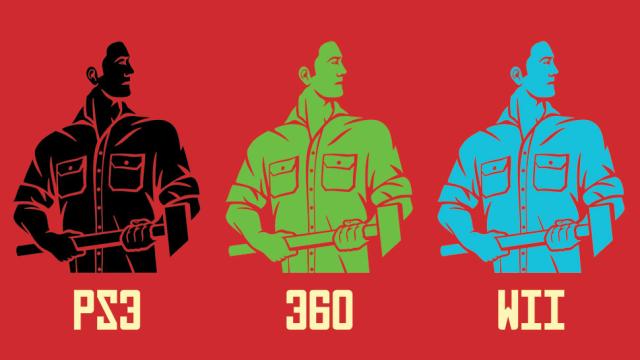
Comments
43 responses to “The Games That Defined The Last Generation”
did you forget some on purpose Forza/Granturismo Halo/Killzone… but the most egregious omission is just cause 2
Did they really release a Gran Turismo this generation yet?
They released a demo which contained a bunch of cars from the Playstation 2 versions and what appeared to be a placeholder front-end about 5 years into the PS3 lifecycle…. I think the first real GT game of this generation will be out AFTER the next generation has already begun.
GT5 is amazing, True there are alot of “fillers” from gt4 but the new cars are incredible. So basicly what im saying is if you look at GT5 with just the premium cars only its still better than any car racing game on the market…..but i take it that you agree with the jist of what i said
Great list, every game here was amazing to play. There are a couple I haven’t played on this list which makes me appreciate this gaming generation so much that I’m still going to hold onto my consoles
Even steel battalion for the kinect? 😛
I don’t want to be a party pooper but; Minecraft on the Xbox is one of the most limited, frustrating ports around. Oh, the precision with those dual analog sticks. In my opinion, it is hardly better than the mobile version.
It is true though that it sold on the Xbox heaps and I absolutely love the game but, on Xbox? That version makes me hate the game.
Well I do want to be a party pooper. Minecraft on the Xbox is months or years behind the PC version in terms of features, its small, fixed worlds dramatically limit the scope of what players can do in the game, and it lacks the mods and player-operated servers that made the game thrive. A game as innovative as Minecraft could never have originated on consoles.
Completely 110% agree. Xbox Minecraft is just classic but with a nicer ‘seeming’ item system.
Try minecraft on ipad. Thats far worse
Tell me about it! What makes me sad is that half of the kids these days (crap I’m sounding old) play for hours and hours accomplishing something you could do in 5 minutes on a PC.
Street Fighter 4 got me into fighting games because you could actually beat the lowest level AI…. and I found it easier to input commands then I did for Alpha 3 on the PS2. Back when I used to play SF4 a lot I remember people online complaining about those very features but they are elitist freaks who if they got their way would give us another street fighter 3 – and kill the scene again.
Even some friends of mine who didn’t care much for fighters played a bit of street fighter 4 which was cool.
I threw it in a bin (I bought it out of a sale bin) after trying the online hadouken spam fest.
Red Dead redemption showed that Rockstar arnt a one trick pony,Dead Rising had so many zombies that it couldn’t been done on earlier hardware and either GTAV or the Last of Us should be on the list as the last huurar.
But good list.
Id agree with LoU, but I dont think there has been enough time for it to influence other titles development.
Id replace Gta4 with Red Dead Redemption. Red Dead defined how story, gameplay and design should be done. MAX payne 3 and Gta5 took the best parts of Red Dead. GTA 4, while a fun game now feels a generation behind the other R* games.
Ehhh maybe not about the design for Red Dead. There were many moments in that game that could have been trimmed down and giving players a tutorial after 8 hours of gameplay is a little lame.
Game: Disney Infinity
Platform: PC, Xbox 360, PS3, PS Vita, 3DS
Why: This game was so much better than Skylanders. Instead of being a shameless cash-in, where all the characters are the same, it gave us a different world for new characters. Each place was a mini-open world in its own right, and the missions were great fun. Each place enabled you to customise something, like a pirate ship or secret base, and had so many collectables and side quests. For those of you that say it was awful because it forced you to buy new toys for levels, can I remind you that the three worlds included in the starter package give around 15-18 hours of play combined. That’s the average length of most games today, and it’s 4-7 hours longer than the Skylanders campaign. I’ve seen so many parents buy their kids Skylanders toys, which do basically nothing, but don’t wish to buy additional 6 hour levels, which are essentially real-life DLC. Disney Infinity truely showed how this genre didn’t have to be a shameless cash-in.
Disney Infinity is a great game, my kids play it a lot and they get loads of enjoyment out of it. But this isn’t a list of good games, it’s a list of games that defined this generation. I don’t think D:I has done much to define this generation.
Well, considering Activision’s been using this genre as a shameless cash-in for years, I’d say that it has defined the generation, at least for kids. Disney Infinity has shown that the genre isn’t just about money; you can have a good time with it as well. How many games have many levels, each of them with their own open world? Not many. How many give you access to a great level designer? Many, but Disney Infinity makes it kid friendly, unlike LittleBigPlanet, which was so confusing and complicated. How many games in this day and age give good co-op multiplayer? Not a whole lot. How many games dare to be different on a home console using a big company’s brand? Disney Infinity. Assassin’s Creed IV has the same pirate ship battling mechanic as the Pirates campaign in Disney Infinity, The Incredible’s campaign is like GTA for kids, and the Monsters University campaign has some great stealth sections, like Splinter Cell. All of those games are MA, but Disney Infinity manages to make all the mechanics kid friendly, in a world we recognise. That is why it is a generation-defining game. Maybe not even this generation, but maybe it’ll shape the next one (PS4 and Xbox One).
Exactly, while it’s a great game (I can sit and watch my kids play it for hours) with a lot of charm and love put I to it, it didn’t really define anything. It doesn’t even have a legacy yet.
It’s basically a collage of other popular games, it’s not very original at all. Not to say it isn’t executed well, there’s a great variety of levels and activities and it’s clear that they put effort into the game rather than making a cash-in. And it’s got that patented Disney magic.
It does a lot of things well, and it improves a lot of things in its genre. But that doesn’t define a generation.
PS. Skylanders is great too. I wouldn’t call it a shameless cash-in. There’s a lot of effort and care put into that game. My kids seem to spend more time with Skylanders than Disney Infinity. I think they’re both great franchises (I personally think Disney’s is better). Also, when you’re talking about shameless cash-ins, don’t forget about Disney Infinity’s power discs. They’re gross.
I upvoted you sir, because you maged to rebutt all my points wonderfully. While I have played Skylanders, I still think the first one was cashing in on Spyro’s brand. For a game with “Spyro” in the title, it sure didn’t feature him much. You could play the whole game without him, and he appears for about a minute of the whole game. But it is a good game in its own right. And you’re right, I had completely forgotten about the power discs. I don’t think I know anyone who’s actually bought one (apart from the one with the starter set). I applaud you (and no, I’m not being sarcastic. I truly mean it).
I just went and checked and you’re right, it actually does say Spyro in the title. Haha, it has so little to do with Spyro, his participation isn’t necessary at all. You’re right, it is nothing more than brand association, it happens a bit too much in video games.
I bought my boys a set of power discs each, just for laughs, they’re not really worth it.
Also, I agree with you that D:I might be influential next-gen. I hope it is, it’s such a charming, well designed game.
You know what, I like FF13. It was linear, a little more than the other games, but not overly so. Have you tried playing FF1, 3 or 4? Until the very end, it’s pretty much as linear as FF13. The only difference being that you *might* be able to go off and try to skip something, but within 10 minutes you’ll find yourself unable to progress at all until you go back and perform your objective. On the other hand, FF13 had a great story, some beautiful ass music, graphics and voice acting to go with it. Others may not have liked FF13, but it was fun, and I can’t say it was much more linear than any other FF’s I’ve played. That being said, FF13-2 fixed most of the “problems” with the game. It was shorter and much less linear, and it was just as fun
I think you have missed the main linearity issue people (including myself) were disappointed by. Sure, in a lot of the FF games the story line is very linear, but FF13 a lot of the time has you literally walking down one way corridors rather than placing you in a world. I’m not trying to say this level based system is bad – sometimes it is necessary to for your gameplay or story telling (ie most shooters/really well done in The Last of Us) – rather that FF fans have come to expect a little less rigidity. For example, in the earlier games you could quite often wander off and find some new town or forest that you don’t need to visit yet in the story. Quite often you couldn’t do anything, but every now and again you could get a new item or magic, or possible find some monsters well above your level. I know it seems silly, but for me that made it a more interactive world, rather than having to go through the game in predefined stages (the joining of these barely disguised by cut-scenes).
In the other FF games I’ve played any of that “Open-worldness” felt more like a gimick than anything else. See a town on the world map that you haven’t visited yet, and don’t need to? Oh, looks like your airship can’t land there because of rocks or trees or rivers that you can’t do anything about yet. Bar a couple places towards the end of the game, none of the FF games I’ve played have let you do anything but go where they tell you. And the dungeons are equally linear. There’s only ever one path and usually you’re blocked off by rocks and such.
In the end, this isn’t really any less or more open than the other games, it just might *feel* that way because of the lack of world map until the last part of the game. I’m not saying that everyone has to like it, but there’s so much bashing on it for issues that, let’s face it, aren’t really any more or less pronounced compared to other games. The immense amount of criticism is rather undue
I sort of agree (and I finished both FF13 & FF13-2) but the article is right in calling out FF13 as a serious negative in the JRPG field. Most JRPGs are fairly linear (they have to be, for the story to make sense) but most provide some sort of illusion of freedom – at the least, you can usually visit previous towns freely.
FF13 put you into what was in many cases a literal corridor with your only option being to move forward. Even the much-vaunted freedom of Gran Pulse is pretty limited. Once you stop exploring that area you’re mostly put back into another series of corridors.
I just had a look at the official hintbook for FF13. To say that 90% of zones are essentially straight or squiggly lines with negligible offshoots is not much of an exaggeration.
Restricting the order in which you visit towns and unlock sidequests makes it non-linear? You could say the same about most of the GTA games, Red Dead, etc. And dungeons are ALWAYS linear, in the end. But every FF I’ve played had branching paths for treasures, etc. And when you’re on that last disc the amount of options you have dwarf most other games. All games have restrictions, it’s the way they present them that gives the game that special feeling of freedom.
That said, I didn’t mind 13’s linearity, it made the game’s art blow me away. The only things that made that game short of a classic, to me, was the shallowness of the characters and the writing in general.
Madden nfl, really?
Read further into it, madden defined this gen in a bad way.
A lack of Valkyria Chronicles makes me a little sad. Such an under appreciated game. It’s art direction is amazing, and the music is fantastic too! Definitely one of my highlights from this generation.
Agree, such a shame there was no ps3 sequel. Also, why would you pick the PSP as your exclusive platform for a sequel? Crazy.
Squad 7, move out!
There should be Crysis in this list.
I’d include LittleBigPlanet for what it did for promoting user generated content on consoles.
Was with this article until far cry 2, then I threw up.
I’m surprised Batman Arkham trilogy didn’t get a mention. It was a very unusual game, a Super Hero game given proper care and attention and done right.
I was about to put Arkham Asylum down before coming to this, the last comment at time of writing 😛 Yeah, Arkham City was bigger and better in almost every way, but learning how to be Batman in Asylum was fantastic. I was so doubtful of the game before I played it, even with all the praising reviews it received and then I changed my mind completely once I got it. If for no other reason, it should be right up there on this list for the Scarecrow-induced hallucination where you play the Joker in the intro. I fell for it and thought my PC had crashed on me at first. Brilliant stuff
Also, Bioshock is THE game of the generation for me
Game: Mass Effect
Platform: Just about everything now.
Why: It was the RPG I’d always been waiting for. I loved RPGs for things like character customization and choice, but hated the D&D combat mechanics in games like KOTOR. Mass Effect threw that out the window. And in using things like the Mako they made the world it was set in feel really, really big. It was, in my opinion, uniquely realistic and believable as a sci-fi game as well. Really, while I enjoyed the sequels, they were progressively dumbed-down and at times became offensive (Miranda’s outfit, EDI’s “perfect” body with built-in high heels, James Vega’s ridiculous stereotyping of both Hispanic Americans and Soliders). The whole game made it feel like you were just part of the events in the Galaxy instead of being this demi-god centre of the universe that the later games, and most fiction in general turned the protagonist into. So for me Mass Effect remains the pinnacle of the series, and the pinnacle of role-playing. I’m looking forward to future games that will hopefully pick that fresh feel back up, instead of being too in love with their own legend (ME3).
The Modern Warfare series most of all. To the point that publishers force their developers to make their own CoD game. Particularly EA where it seems like it’s their only business model.
Game: Xenoblade
Platform: Wii
Why: A great JRPG to send off the Wii. Epic in scale, great characters, wonderful music, best Wii graphics, and great story. What’s not to love? 🙂
As others have said this list is missing the best game of the current/last gen Red Dead Redemption. Really made GTA 4 and even GTA 5 seem dull in comparison, definitely the game of that generation.
No NBA 2k11? Pretty sure that was one of the greatest sporting sims of the current gen.
Great list… my list would also include Red Dead Redemption, The Last of Us, Batman: Arkham Asylum and Dead Space in there though. All of those games shifted their genres considerably. For redefining open world exploration, storytelling, comic-book adaptations and horror.
Studio of this generation? Naughty Dog… i dont know how they do it but they just keep pumping out amazing games. I’m so excited to see what they come up with on the PS4.
I dunno how the Last of Us wasn’t in there.
Game of the year for me. Best game on my PS3 for sure.
And then there was Sniper Elite V2; a game for those among us with slippery definitions of our personal moral codes. Squeeze off your best shot at 220 metres with a strong side wind and you could change history (and get to watch your shot wreak havoc in slow-motion 3D kill cam). A game for those of us who liked the Hitman games but thought they were a little tame.